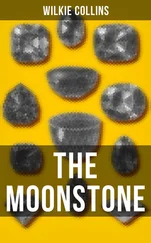Wilkie Collins - The Queen of Hearts
Здесь есть возможность читать онлайн «Wilkie Collins - The Queen of Hearts» весь текст электронной книги совершенно бесплатно (целиком полную версию без сокращений). В некоторых случаях можно слушать аудио, скачать через торрент в формате fb2 и присутствует краткое содержание. Год выпуска: 1999, Жанр: Классическая проза, на английском языке. Описание произведения, (предисловие) а так же отзывы посетителей доступны на портале библиотеки ЛибКат.
- Название:The Queen of Hearts
- Автор:
- Жанр:
- Год:1999
- ISBN:нет данных
- Рейтинг книги:5 / 5. Голосов: 1
-
Избранное:Добавить в избранное
- Отзывы:
-
Ваша оценка:
- 100
- 1
- 2
- 3
- 4
- 5
The Queen of Hearts: краткое содержание, описание и аннотация
Предлагаем к чтению аннотацию, описание, краткое содержание или предисловие (зависит от того, что написал сам автор книги «The Queen of Hearts»). Если вы не нашли необходимую информацию о книге — напишите в комментариях, мы постараемся отыскать её.
The Queen of Hearts — читать онлайн бесплатно полную книгу (весь текст) целиком
Ниже представлен текст книги, разбитый по страницам. Система сохранения места последней прочитанной страницы, позволяет с удобством читать онлайн бесплатно книгу «The Queen of Hearts», без необходимости каждый раз заново искать на чём Вы остановились. Поставьте закладку, и сможете в любой момент перейти на страницу, на которой закончили чтение.
Интервал:
Закладка:
But the events of that one morning were not destined to end even yet. I had discovered the failure of the bank and the arrest of Mr. Fauntleroy. I was next to be enlightened, in the strangest and the saddest manner, on the difficult question of his innocence or his guilt.
Before my friends had left my office—before I had exhausted the arguments which my gratitude rather than my reason suggested to me in favor of the unhappy prisoner—a note, marked immediate, was placed in my hands, which silenced me the instant I looked at it. It was written from the prison by Mr. Fauntleroy, and it contained two lines only, entreating me to apply for the necessary order, and to go and see him immediately.
I shall not attempt to describe the flutter of expectation, the strange mixture of dread and hope that agitated me when I recognized his handwriting, and discovered what it was that he desired me to do. I obtained the order and went to the prison. The authorities, knowing the dreadful situation in which he stood, were afraid of his attempting to destroy himself, and had set two men to watch him. One came out as they opened his cell door. The other, who was bound not to leave him, very delicately and considerately affected to be looking out of window the moment I was shown in.
He was sitting on the side of his bed, with his head drooping and his hands hanging listlessly over his knees when I first caught sight of him. At the sound of my approach he started to his feet, and, without speaking a word, flung both his arms round my neck.
My heart swelled up.
“Tell me it’s not true, sir! For God’s sake, tell me it’s not true!” was all I could say to him.
He never answered—oh me! he never answered, and he turned away his face.
There was one dreadful moment of silence. He still held his arms round my neck, and on a sudden he put his lips close to my ear.
“Did you get your money out?” he whispered. “Were you in time on Saturday afternoon?”
I broke free from him in the astonishment of hearing those words.
“What!” I cried out loud, forgetting the third person at the window. “That man who brought the message—”
“Hush!” he said, putting his hand on my lips. “There was no better man to be found, after the officers had taken me—I know no more about him than you do—I paid him well as a chance messenger, and risked his cheating me of his errand.”
“ You sent him, then!”
“I sent him.”
My story is over, gentlemen. There is no need for me to tell you that Mr. Fauntleroy was found guilty, and that he died by the hangman’s hand. It was in my power to soothe his last moments in this world by taking on myself the arrangement of some of his private affairs, which, while they remained unsettled, weighed heavily on his mind. They had no connection with the crimes he had committed, so I could do him the last little service he was ever to accept at my hands with a clear conscience.
I say nothing in defense of his character—nothing in palliation of the offense for which he suffered. But I cannot forget that in the time of his most fearful extremity, when the strong arm of the law had already seized him, he thought of the young man whose humble fortunes he had helped to build; whose heartfelt gratitude he had fairly won; whose simple faith he was resolved never to betray. I leave it to greater intellects than mine to reconcile the anomaly of his reckless falsehood toward others and his steadfast truth toward me. It is as certain as that we sit here that one of Fauntleroy’s last efforts in this world was the effort he made to preserve me from being a loser by the trust that I had placed in him. There is the secret of my strange tenderness for the memory of a felon; that is why the word villain does somehow still grate on my heart when I hear it associated with the name—the disgraced name, I grant you—of the forger Fauntleroy. Pass the bottles, young gentlemen, and pardon a man of the old school for having so long interrupted your conversation with a story of the old time.
THE TENTH DAY.
THE storm has burst on us in its full fury. Last night the stout old tower rocked on its foundations.
I hardly ventured to hope that the messenger who brings us our letters from the village—the postman, as we call him—would make his appearance this morning; but he came bravely through rain, hail and wind. The old pony which he usually rides had refused to face the storm, and, sooner than disappoint us, our faithful postman had boldly started for The Glen Tower on foot. All his early life had been passed on board ship, and, at sixty years of age, he had battled his way that morning through the storm on shore as steadily and as resolutely as ever he had battled it in his youth through the storm at sea.
I opened the post-bag eagerly. There were two letters for Jessie from young lady friends; a letter for Owen from a charitable society; a letter to me upon business; and—on this last day, of all others—no newspaper!
I sent directly to the kitchen (where the drenched and weary postman was receiving the hospitable attentions of the servants) to make inquiries. The disheartening answer returned was that the newspaper could not have arrived as usual by the morning’s post, or it must have been put into the bag along with the letters. No such accident as this had occurred, except on one former occasion, since the beginning of the year. And now, on the very day when I might have looked confidently for news of George’s ship, when the state of the weather made the finding of that news of the last importance to my peace of mind, the paper, by some inconceivable fatality, had failed to reach me! If there had been the slightest chance of borrowing a copy in the village, I should have gone there myself through the tempest to get it. If there had been the faintest possibility of communicating, in that frightful weather, with the distant county town, I should have sent there or gone there myself. I even went the length of speaking to the groom, an old servant whom I knew I could trust. The man stared at me in astonishment, and then pointed through the window to the blinding hail and the writhing trees.
“No horse that ever was foaled, sir,” he said, “would face that for long. It’s almost a miracle that the postman got here alive. He says himself that he dursn’t go back again. I’ll try it, sir, if you order me; but if an accident happens, please to remember, whatever becomes of me, that I warned you beforehand.”
It was only too plain that the servant was right, and I dismissed him. What I suffered from that one accident of the missing newspaper I am ashamed to tell. No educated man can conceive how little his acquired mental advantages will avail him against his natural human inheritance of superstition, under certain circumstances of fear and suspense, until he has passed the ordeal in his own proper person. We most of us soon arrive at a knowledge of the extent of our strength, but we may pass a lifetime and be still ignorant of the extent of our weakness.
Up to this time I had preserved self-control enough to hide the real state of my feelings from our guest; but the arrival of the tenth day, and the unexpected trial it had brought with it, found me at the end of my resources. Jessie’s acute observation soon showed her that something had gone wrong, and she questioned me on the subject directly. My mind was in such a state of confusion that no excuse occurred to me. I left her precipitately, and entreated Owen and Morgan to keep her in their company, and out of mine, for the rest of the day. My strength to preserve my son’s secret had failed me, and my only chance of resisting the betrayal of it lay in the childish resource of keeping out of the way. I shut myself into my room till I could bear it no longer. I watched my opportunity, and paid stolen visits over and over again to the barometer in the hall. I mounted to Morgan’s rooms at the top of the tower, and looked out hopelessly through rain-mist and scud for signs of a carriage on the flooded valley-road below us. I stole down again to the servants’ hall, and questioned the old postman (half-tipsy by this time with restorative mulled ale) about his past experience of storms at sea; drew him into telling long, rambling, wearisome stories, not one-tenth part of which I heard; and left him with my nervous irritability increased tenfold by his useless attempts to interest and inform me. Hour by hour, all through that miserable day, I opened doors and windows to feel for myself the capricious changes of the storm from worse to better, and from better to worse again. Now I sent once more for the groom, when it looked lighter; and now I followed him hurriedly to the stables, to countermand my own rash orders. My thoughts seemed to drive over my mind as the rain drove over the earth; the confusion within me was the image in little of the mightier turmoil that raged outside.
Читать дальшеИнтервал:
Закладка:
Похожие книги на «The Queen of Hearts»
Представляем Вашему вниманию похожие книги на «The Queen of Hearts» списком для выбора. Мы отобрали схожую по названию и смыслу литературу в надежде предоставить читателям больше вариантов отыскать новые, интересные, ещё непрочитанные произведения.
Обсуждение, отзывы о книге «The Queen of Hearts» и просто собственные мнения читателей. Оставьте ваши комментарии, напишите, что Вы думаете о произведении, его смысле или главных героях. Укажите что конкретно понравилось, а что нет, и почему Вы так считаете.











